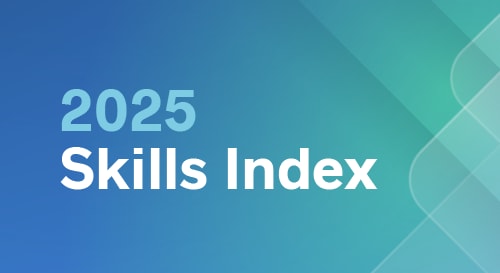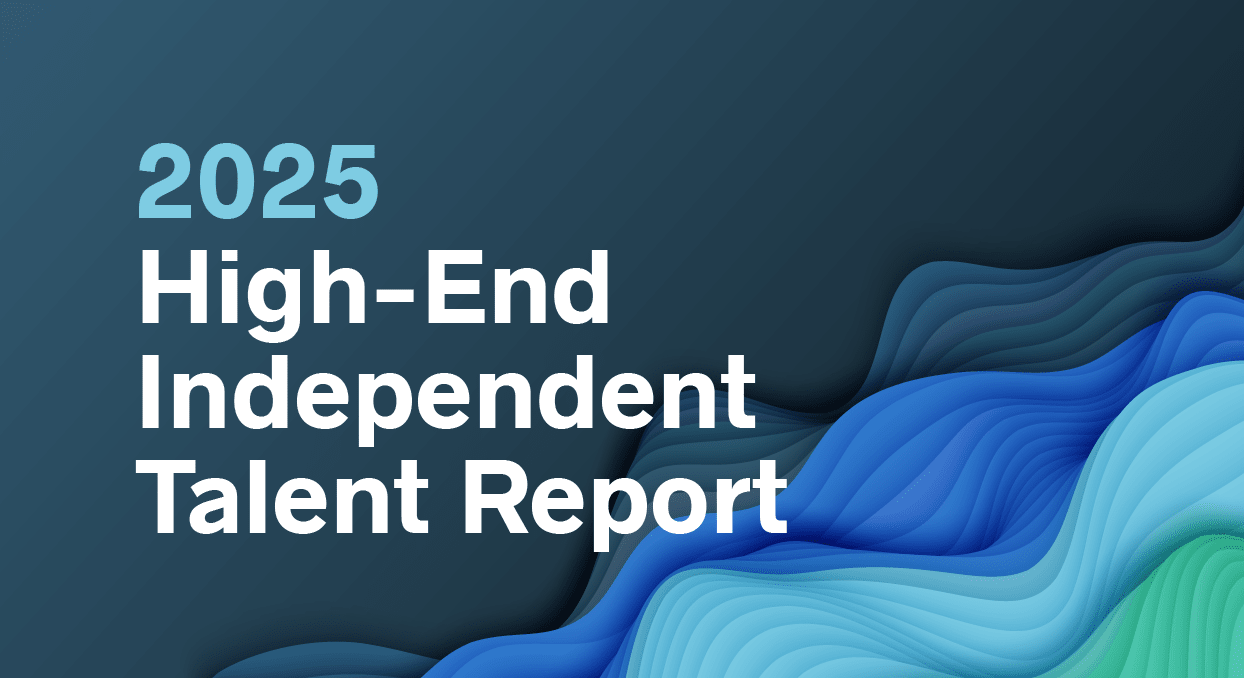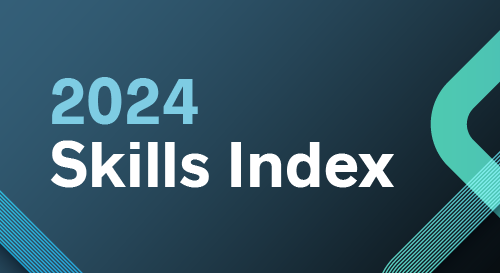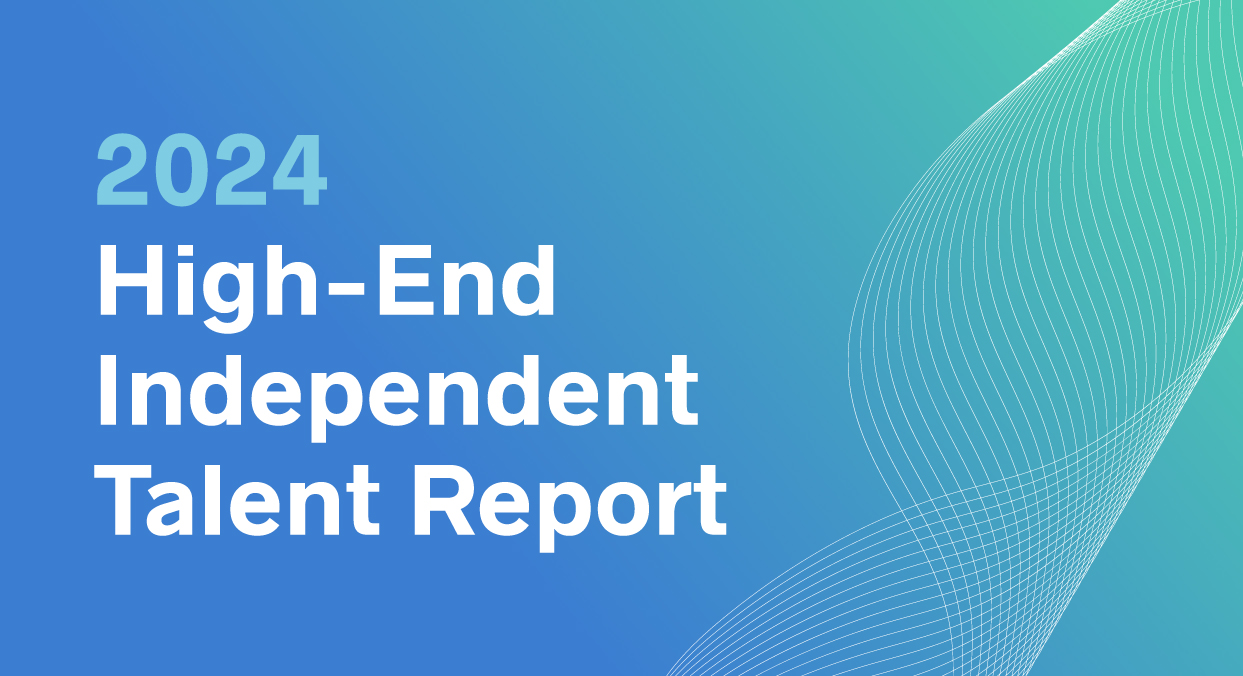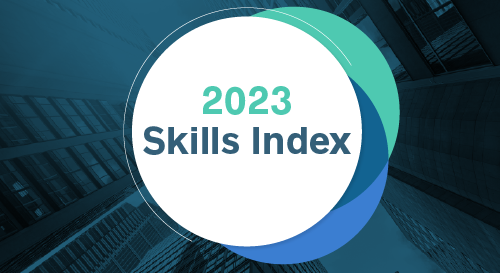
The competition to secure top talent is at a fever pitch as companies seek much-needed skills, expertise, and capacity to fuel business transformations and capture growth opportunities. With certain skills more in demand than ever before, many of the best candidates are opting out of the full-time workforce in favor of flexible, autonomous work—producing a 20% surge in the number of independent workers in 2023, a remarkable 73% growth since 2019.
Instead of fighting these labor trends, savvy leaders are turning to independent talent to build competitive advantage, access in-demand skills, and tackle initiatives their full-time teams lack the bandwidth to complete. With Business Talent Group (BTG), finding the right independent talent quickly and deploying them compliantly can be as simple as posting a project—so long as you’re ready to act when the right candidate comes along.
Based on our years of experience helping top companies source highly skilled talent for thousands of mission-critical projects, BTG has deep insight into how business leaders can streamline their talent search, avoid roadblocks, and rapidly select the ideal candidate for the project at hand. Secure talent now with these proven best practices.
Pre-scope the project and process
The key to making quick decisions is to know ahead of time what—or whom—you’re looking for. It’s also essential to determine who needs to provide input during the decision-making process. Try these tips to start your project on the right foot and avoid costly delays:
- Clarify the individuals who will be involved in the decision-making process, including business leaders who can help define the project details and skill requirements, those who will be directly involved in interviews, and other stakeholders who simply need to be kept informed.
- Determine what skills most closely align with essential and immediate deliverables. What needs to happen over the next 12 weeks vs. what might be needed long-term?
- Outline as many specific tasks and deliverables as possible—as well as a general timeline and anticipated budget—even if the project isn’t fully fleshed out.
- Ask yourself if your budget is realistic. Or are you doing a direct translation from a prorated FTE annual salary? Keep in mind the scope of the need. Is it temporary, or is it long-term?
- Focus on the “Use It or Lose It” mindset and take advantage of budget and internal approvals while you have them.
Determine what you really need to get the job done
Focus on finding a great candidate who fits your most essential criteria. Be sure to consider these factors:
- Prior project experience: If a talent has “been there, done that” they will be able to help you exactly as you need.
- Working style: Are you looking for someone who can operate solo, or someone who works well with and on a team?
- Location: Do you NEED them to be on-site (or local), or is a remote candidate acceptable? If you open the position or project up, the pool of viable candidates grows exponentially.
- Time of day availability: Do they need to be in the same time zone or region, or are you willing to expand that if they can work and meet during similar hours to you?
- Must-have requirements: Now that you’ve identified the scope of the project, list out the top three to five things you want from this person (e.g., specific industry or project experience, motivation, ingenuity), and pad those out with some “nice-to-have” qualities.
And remember! These are not long-term hires. Think about the present—the now—when sourcing your talent, rather than the more extended considerations associated with full-time hires.
With your project and talent requirements in mind, BTG’s dedicated Talent Solutions team will curate a list of candidates matching those criteria. As we send talent profiles for your review, be sure to read and focus on the summary—our team will put the important details about a candidate up front to simplify the process of choosing which candidates you would like to interview.
Make interviews more valuable
Whether you opt for a group setting or 1:1s, if your talent interviews are just a Q&A, you won’t get the best sense of your candidate. Instead, utilize the time to discuss the project details, scope, goals, deadlines, and other details you established in the project scoping phase.
Treat the interview as a working session and spend time considering the talent’s approach to the problem so that you are evaluating their proposal as much as their qualifications for the project. This will give both you and the candidate a sense of what they’re signing on to do before you dive in too far, so that each of you can decide quickly whether the project is a good fit and cut down on wasted time.
Here are some best practices to help you get more out of each interview:
- Have consistent interview questions. You might ask about relevant examples of previous work, what motivates the candidate, and other opportunities they are considering. You can also discuss the project requirements and gauge their reactions/attitude. As you interview multiple candidates, keep your line of questioning the same so that you can get a clear overview of your applicant pool and make comparisons.
- For a more efficient process, limit interviews to 2-3 stakeholders who will work directly with the candidate. This ensures that the people who know the project best are the ones making the decision.
- Ensure that everybody’s expectations are established and vocalized. This will minimize the potential for miscommunication.
- Discuss the project schedule, your time-of-day requirements, and any limitations on their availability, such as potential preexisting obligations that may affect the project start.
- Ask yourself “Are their answers convoluted or straight to the point? Can they define success?” This can shed light on the way the candidate approaches work and how they will complete deliverables for the project at hand.
- Don’t hesitate to ask for feedback from references.
- Build in or allow for negotiation time during the interviewing process.
To save yourself additional time, as soon as you find a candidate that’s a good fit, it’s best to move forward and get the ball rolling vs. interviewing a dozen+ what-ifs and introducing unnecessary delays.
Find the right talent with Business Talent Group.
Executives who act quickly and decisively tend to get the best talent in the end. The best candidates are likely considering many opportunities, and if you wait too long, they may not be available when you’re finally ready to go. To rapidly capture results from using on-demand talent, the process from intro to interview to offer should be much faster than the one you employ for full-time hires.
BTG makes it easy for business leaders like you to connect with the world’s top talent—including independent consultants, subject matter experts, project managers, and interim executives—to help you fuel growth and innovation, improve performance, and gain competitive advantage. Explore a project to take advantage of the talent revolution today.
GET THE SKILLS YOU NEED
Thousands of independent consultants, subject matter experts, project managers, and interim executives are ready to help address your biggest business opportunities.



